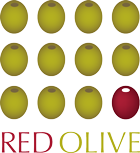When Blind Veterans UK was founded In 1915, its mission was to help soldiers blinded during the First World War.
Today, the charity offers blind and vision impaired ex-service personnel lifelong support – no matter what the cause of their sight loss, and regardless of how long they served. Its services include rehabilitation and training, with the aim of achieving what business systems manager Rebecca Burgess calls ‘victory over blindness’.
Blind Veterans and Red Olive have partnered over many years, and in the last two years have been working together on a programme of business change and modernisation that includes redesigning and rebuilding Blind Veterans’ data warehouse, migrating from Business Objects to Microsoft PowerBI, and moving from on-premise to a flexible cloud architecture. In the wake of the pandemic, the goal was to improve information provision and support Blind Veterans’ aim to adopt a digital first framework, helping to make geography a less important aspect of the charity’s overall operations. In addition, the charity wanted to make cost savings.
Many organisations struggle to attract and retain in-house data and analytics specialists with the right skills. This is especially true where data and analytics is not the front-line business of the organisation or the team is relatively small, because it becomes hard to offer career progression and there may not be enough full-time positions for specialists in each specialism.
Based on the long-term working partnership, Blind Veterans chose to outsource its data and analytics provision to Red Olive. The aim was to achieve flexible access to the right skills at the right time, at an affordable and predictable price.
The responsible use of data
“We rely quite heavily on direct marketing, so if we can record peoples’ addresses more accurately, we can save on printing costs and postage while also reaching a more targeted audience,” Burgess explains. “The charity sector in general relies on a lot of legacy systems, some of them bespoke or heavily customised. We’ve got duplicated records, which is quite a problem that the whole charity sector has – and that’s something that Red Olive has been helping us address.”
Building a new data warehouse was therefore just part of the overall commission. Red Olive examined the data Blind Veterans UK collected and held and advised on its organisation. In many cases, the data it relies on is sensitive, so needs to be handled with care.
“We have a rigorous internal process for handling data,” says Burgess, who describes a process for its management that, to many commercial organisations, may be unfamiliar. “Our case workers will first define what kind of data they need if they are to provide a beneficiary’s necessary care – before we even start to think about capturing those metrics. We pass that data wish list from our case workers to our internal data protection officer, and it’s only once the data impact assessments have been completed, or we have a justified business means to collect the information, that we do so.”
Developing a single customer view
The new data warehouse was developed using PowerBI not only because it’s well supported and understood, but also because it was the best fit for Blind Veterans UK’s unusual requirements.
“Being a blind charity, accessibility for the visually impaired was an imperative for us because we have beneficiaries on staff, too.”
But, says Burgess, “the most value that we’re going to get from Red Olive is yet to come, when it starts helping us to link our bespoke systems for fundraising, managing property, tracking beneficiaries, to give us a single customer view. When that’s up and running, we will be able to see every interaction we have with a single person, whether they are staying in one of our properties, supporting us through donations, or both. We’re still scoping that part of the project.”
Once implemented, the single customer view that the system will provide should deliver diverse benefits. Most importantly, it will help the charity to reduce its expenditure on printing and postage by maintaining more accurate contact records, while also providing opportunities to partner with other charities.
An ongoing relationship
“Red Olive was able to work around our financial requirements, so rather than each piece of work being priced separately, it blocks out a set number of days each month for us, in return for an ongoing fee. They’ve been flexible, too, so if we need fewer days one month, we can carry them over to the next when we might have double the amount of work.”
And, while Blind Veterans UK has the final say, it consults with Red Olive on direction and approach.
“We set our overall objectives, and Red Olive comes back with suggestions and advice on new tools, how the industry is moving, or a better order in which to conduct certain pieces of work because the benefits would be greater than if they were done in the order we initially suggested.”
Burgess described the model as a working partnership.
“We have the roadmap, but they help us get there,” she says. “Red Olive genuinely wants us to succeed and get to where we need to, and we know we can approach the team with any questions we have, no matter how inane, and they’ll help us work through them. It’s definitely not just a transactional relationship.”
To find out more about the work Red Olive and Blind Veterans UK have been doing to deliver cost savings and develop a single customer view, read the case study, or email [email protected]



